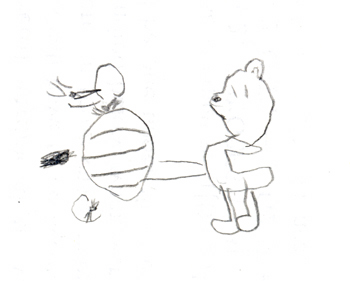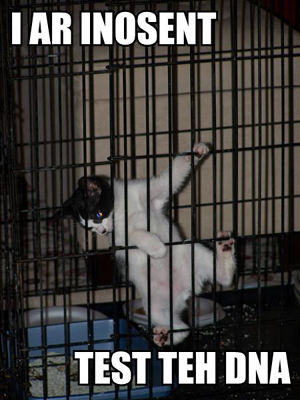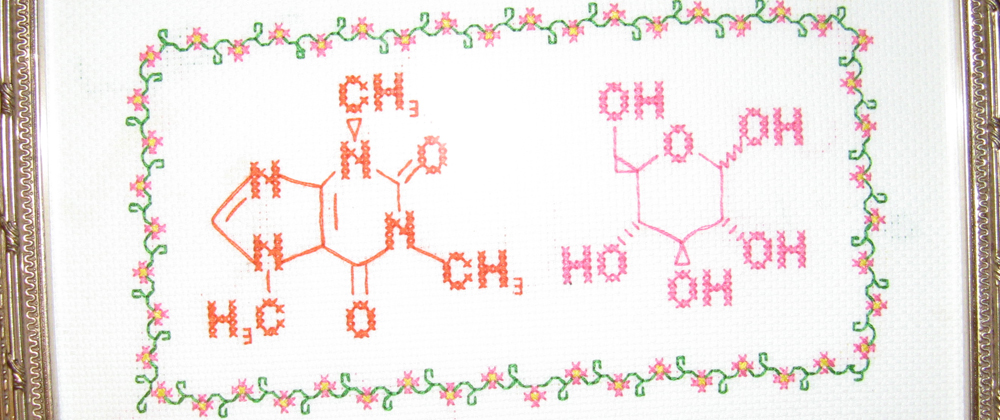While sometime the phone would ring
Just as we were sitting down to eat
Or telling a bedtime story
Or trying to get out the door
Or drifting off to sleep,
There was a comfort in being
Reachable
By those who needed to reach us
And in whose reach we wanted to be.
But now, the unsteady dial tone is gone.
The earful of static has gone silent.
The landline, she is dead.
And verily, we might mourn,
Then let her rest in peace,
Survived by the cell phones.
But we need our DSL
As an academic needs her coffee*
(Or as a twentyish Objectivist needs his Rush CD),
And so we wait
For the phone company guy
To break up the concrete
And perform the bypass surgery
That will connect us again
To the system of tubes
That feels like home.
Finding cash to make learning happen.
The school year just started again for my kids, and it’s pretty hard to escape the conclusion that as public school teachers are being asked to do more, their resources are dwindling. During the summer, the school mailed out the (extensive) lists of basic school supplies needed by kids at each grade level — the basic stuff, like crayons and pencils and paper, that during the last millennium when I was in grade school were included in the classroom funding like desks and electricity.
It strikes me that as a society, we need to revisit our funding priorities. But in the meantime, there are legions of cash-strapped teachers trying to spark some excitement around learning. Even if their school districts are tapped out, there are folks who value education who can help.
High on that list is DonorsChoose, an organization that helps teachers with classroom projects and other student learning experiences get the funding they need from ordinary folks in cyberspace who chip in what they can. (You may remember that ScienceBlogs readers raised some serious cash for such projects last spring. It’s also worth noting that DonorsChoose underwent a recent expansion and is now accepting proposals from teachers in all 50 states in the US.)
If you’re a school teacher trying to spin straw into gold — or you know a school teacher with grand plans and scarce resources — I’m posting to encourage you to consider creating and submitting a student project proposal to DonorsChoose. You don’t need to be a professional grant writer to do it — just a teacher with a vision for making your students’ learning experience better (and a list of the resources you’d need to make that happen) who can describe your students and your plan in a one page essay.
That doesn’t sound too hard, does it?
Here are some more specifics:
Friday Sprog Blogging: adaptive strategies.

Younger offspring: The bad thing about all the Canada geese on the fields this summer is that the fields have lots of goose poop.
Dr. Free-Ride: Well, geese gotta poop.
Younger offspring: I don’t like stepping in goose poop when we’re playing soccer.
Dr. Free-Ride: I can understand that.
Elder offspring: The Canada geese look like they mostly eat grass and weeds. There are other birds that eat lots of berries, and their poop is pretty nasty.
Dr. Free-Ride: It’s true that it’s not fun to be pooped on by a bird that’s just eaten a lot of berries. But it’s a good deal for the berry bush.
Younger offspring: How?
Dr. Free-Ride: Think of the berries you’ve been eating all summer. What do they have a lot of?
Younger offspring: Seeds.
Dr. Free-Ride: And what happens when critters like birds eat those seedy berries?
Younger offspring: They poop out the seeds.
Dr. Free-Ride: Sure, but probably not right away.
Elder offspring: They fly for awhile first and then poop out the seeds.
Dr. Free-Ride: Uh huh. And why is that a good deal for the plant that grew the berries?
Elder offspring: Because then the seeds can grow far away from the original plant — farther away than they’d grown if the berries just fell off the plant — and there will be more berry bushes growing in lots of other places.
Dr. Free-Ride: A tidy little plan for world-wide domination.
Memo to whom it may concern.
The bullets are addressed to different people and organizations, and I doubt very much that some of them would recognize these were addressed to them even if they received an actual memo. (It’s been that kind of week.)
Be it known that:
C&E News on writing journal articles.
Since scientist-on-scientist communication is a longstanding topic of interest in these parts, I wanted to point out a recent (August 13, 2007) article in Chemical & Engineering News (behind a paywall, but definitely worth locating a library with a subscription) that offers tips for writing journal articles. It’s quite a substantial article, drawing on advice from “dozens of scientists and engineers around the world in academia, industry, and government” — which is to say, the people who read and write journal articles as part of their jobs.
It goes without saying that this crowd has some strong views.
This seems backwards to me.
My tenure dossier is due in 24 days.
My application for a sabbatical leave is due in 3 days.
Is it really possible to wrap your head around the possibility of a sabbatical, let alone map out the projects you might complete during such a leave, before the tenure dossier is wrapped up?
(Maybe they’re just messing with me.)
What the scientists don’t talk about in their papers tells you something, too.
On Stranger Fruit, there’s a response by historian of science Naomi Oreskes to recent criticisms of her 2004 paper in Science discussing the consensus position regarding anthropogenic climate change. While the whole trajectory of these sorts of “engagements” is interesting in its way — attacks on claims that weren’t made, critiques of methodologies that weren’t used, and so forth — the part of Oreskes’ response that jumped out at me had to do with the kinds of issues on which scientists focus when they’re talking to each other in the peer-reviewed literature:
Friday Sprog Blogging: FSB goes CSI.
 It has been noted before that the Free-Ride offspring have a fondness for LOLcats. (After all, what six- to eight-year-old wouldn’t like LOLcats?)
It has been noted before that the Free-Ride offspring have a fondness for LOLcats. (After all, what six- to eight-year-old wouldn’t like LOLcats?)
But it turns out that even captioned kitties can be the impetus for a conversation about matters scientific.
Oh noes!
Younger offspring: That kitty doesn’t want to be caged.
Elder offspring: Because he’s innocent. He didn’t do the crime. Check the DNA!
Younger offspring: What do you mean, check the DNA?
Doing the math: how plausible is the claim that changing what you eat makes more difference to global warming than changing what you drive?
Dave Munger pointed me to an article in the New York Times that claims “switching to a plant-based diet does more to curb global warming than switching from an S.U.V. to a Camry.”
Dave is a critical consumer of information and notes that there is little given in this particular article (which appears in the “Media & Advertising” section) as far as numbers. As I’m not an agronomist, I don’t have all the relevant numbers at my finger tips, but I’m happy to set up some equations into which reliable numbers can be plugged once they are located.
Reacting to PRISM and publishers’ concerns about ‘scientific integrity’ (the short version).
Even though I’ve been frightfully busy this week, I’ve been following the news about the launch of PRISM (Partnership for Research Integrity in Science & Medicine). I first saw it discussed in this post by Peter Suber, after which numerous ScienceBloggers piled on. If you have some time (and a cup of coffee), read Bora’s comprehensive run-down of the blogosphere’s reaction.
If you’re in a hurry, here are three reasons I think PRISM’s plans to “save” scientists and the public from Open Access are a bad idea.



